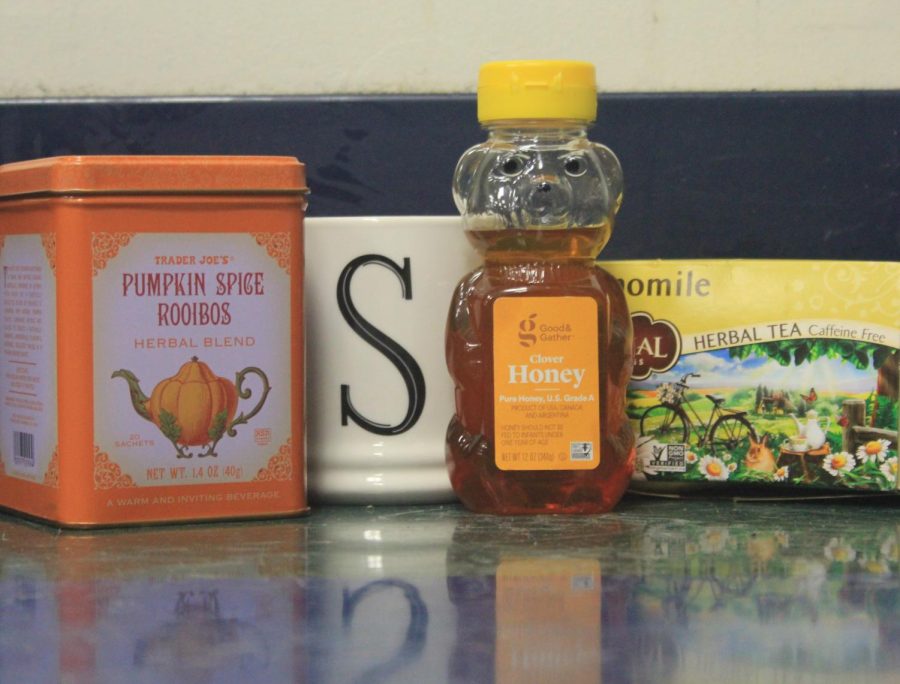Tea Traditions: Examining tea from cultures around the world
Media by Sarah Harris
Many different students drink many different types of tea.
Within the United States, tea is an agent for relaxation and detoxing the body. However, within other cultures around the world tea has a greater cultural significance.
After water, tea is the second most consumed drink.
In Taiwanese culture, tea is a staple drink. Tea trees are native to Taiwan, and a developed tea culture was introduced to Taiwan through the earliest waves of Chinese immigrants from Fujian province.
Clay Huang, junior, drinks mostly green and black tea. Huang has lived in the United States his whole life, but his grandparents live in Taiwan. He said when he visits them in Taiwan, he drinks more tea because it is a more dominant part of their culture.
“For them, they don’t drink soda, juices or anything like that,” Huang said. “It’s either water or a cup of tea. Because it’s this long-standing tradition, you’ll find it in any store as like a side drink.”
For his family, there is no specific time tea is served.
“My grandparents drink tea a lot, but my parents serve it when you need a pick-me-up or sometimes in the morning,” Huang said.
Huang said he drinks caffeinated tea in hopes of staying awake.
Similar to Taiwan, tea is India’s most popular drink. The ritual of drinking chai happens regularly throughout the day, and roadsides are dotted with chai wallahs, or street vendors, who serve it boiled with spices, sugar and milk.
Shalini Yagnik, senior, enjoys drinking chai.
“Tea is a time for families to sit together in the morning or in the afternoon, and I think it’s a friendly thing,” Yagnik said. “Whenever someone visits your house, you always offer them chai.”
Yagnik said tea plays a larger in India’s culture opposed to America’s culture.
“It’s a bonding experience and something shared between everyone in India,” Yagnik said.
Rita Roussin, Family and Consumer Sciences (FACS) teacher, teaches World Cuisine. In her class, students learn about the different cuisines throughout the world.
“It’s important for students to learn about different cultures,” Roussin said. “A lot of students enjoy making food from different areas in the world as it provides them with a new perspective.”
Your donation will support the student journalists of Marquette High School. Your contribution will allow us to purchase equipment and cover our annual website hosting costs. You may become a PATRON by making a donation at one of these levels: White/$30, Green/$50, Blue/$100. Patron names will be published in the print newsmagazine, on the website and once per quarter on our social media accounts.

Sarah Harris, senior, is the Associate Editor for the Messenger and is also the Copy Editor for the Medallion, Marquette's yearbook. Sarah is involved...






